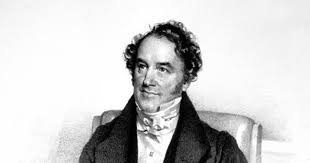
Conradin Kreutzer: A Complete Biography
Conradin Kreutzer (also spelled Kreuzer), born on November 22, 1780, was a prominent German composer, conductor, and operatic figure in the early 19th century. Best[…]

Conradin Kreutzer – Biography and History
Conradin Kreutzer, born on November 22, 1780, in Meßkirch, a small town in the Swabian region of Germany, emerged as a prominent composer and conductor[…]

Conradin Kreutzer – Biography and Life
Conradin Kreutzer was a prominent composer and conductor of the Romantic era, born on November 22, 1780, in Messkirch, Germany. His musical talents were evident[…]